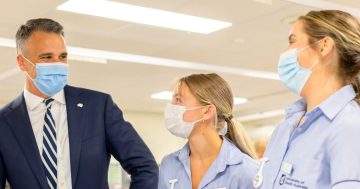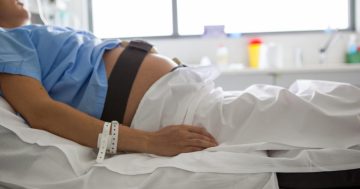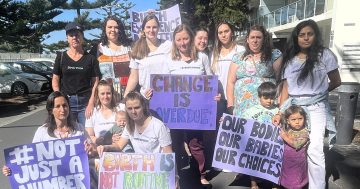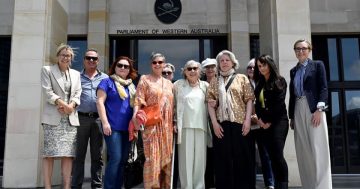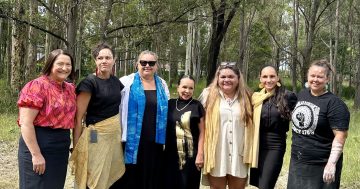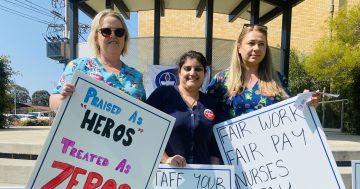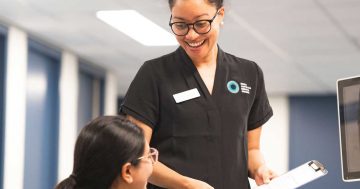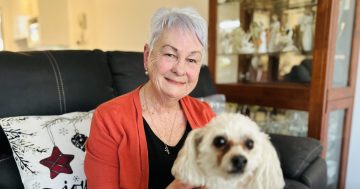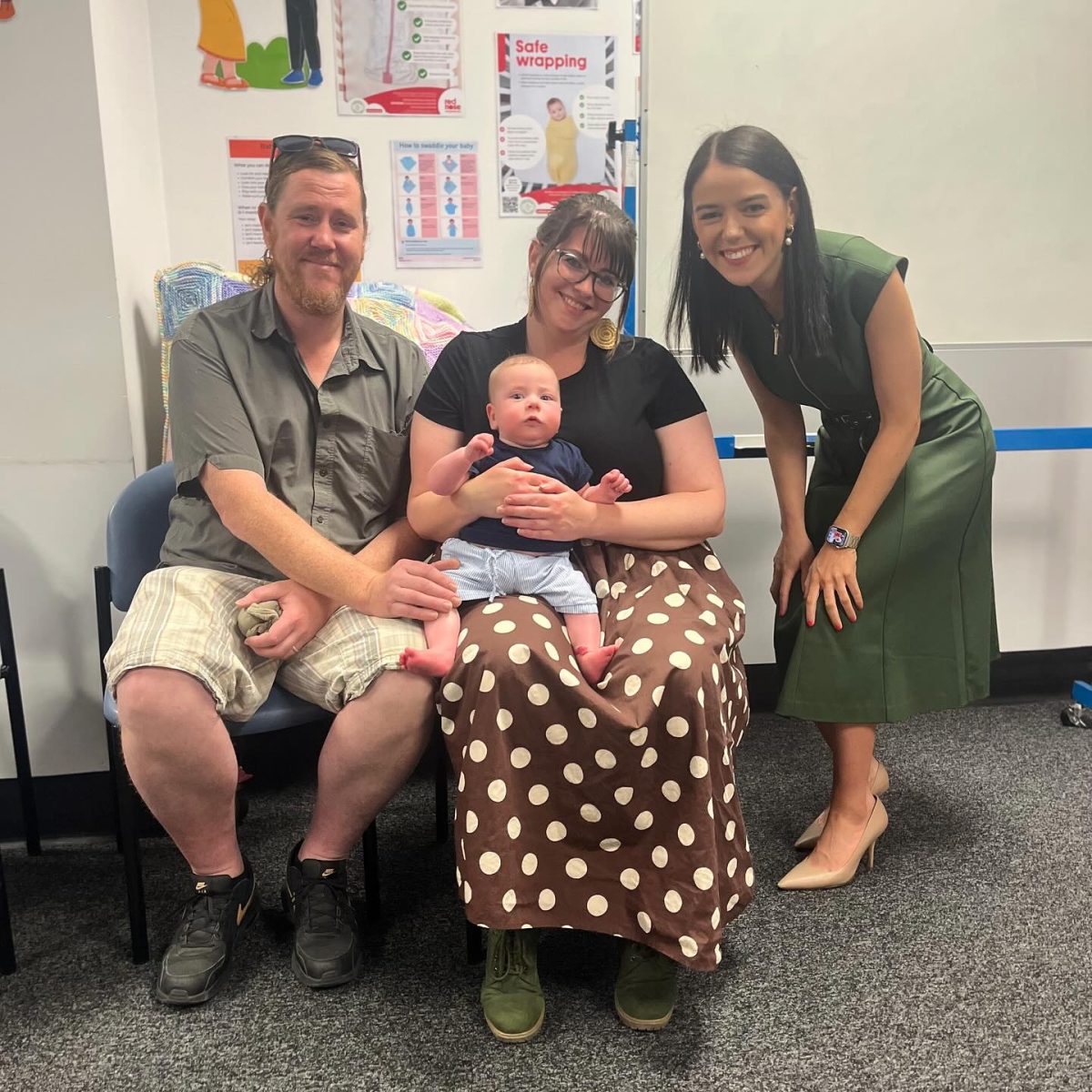
Olivia Savvas MP joins a family in the Wattle Clinic at the Women’s and Children’s Health Network, which since opening in January has successfully supported 29 families navigating pregnancy after loss. Photo: Facebook.
In light of her own family’s experience, South Australian MP Olivia Savvas has successfully moved a motion to establish a parliamentary inquiry to examine the prevalence, causes and effects of stillbirth – along with how to enhance supports.
More than seven in 1000 births in the state are stillbirths, with the most common causes being a congenital anomaly (32 per cent), unexplained antepartum foetal death (15 per cent) and maternal conditions (13 per cent).
The Member for Newland has already met with community support groups and medical experts in the field to inform the government on how this parliamentary inquiry could assist them further.
“My baby brother Benjamin was born awake at 24 weeks’ gestation but passed soon after,” said Ms Savvas. “Our entire lives have very much been shaped by the gravity of this loss and I want to do all I can to better support other families in this situation.
“We owe it collectively to all the babies who should have learned to ride a bike, who should have learned to read, who should have gone to school, who should have celebrated Christmases and 21st birthdays and who may have had the chance later to have babies of their own.”
Core to the focus of this inquiry will be seeking answers about why stillbirths happen and investigating ways to reduce the prevalence and better support impacted families.
In pursuing this mandate, the committee will report on:
- Best practice stillbirth prevention education and awareness programs for expectant parents
- Public education programs to increase community awareness of stillbirth and where people can access support
- Models of care in pregnancy to help reduce stillbirth, including for priority populations
- Follow-up care including mental health support or care in subsequent pregnancies for parents after stillbirth
- Support and training for healthcare professionals
- Data collection, reporting and monitoring
- And the allocation of research efforts.
Among those informing the inquiry are staff of the Women’s and Children’s Hospital, which hosts the Wattle Clinic. Since opening earlier this year, the facility has supported 29 women in giving birth to healthy babies, following previous losses.
Much of its success has been credited to the clinic’s multidisciplinary approach, which integrates expert medical and midwifery care.
The staff believe it is crucial to managing the complexities associated with pregnancies following loss, offering women a supportive and compassionate environment to carry their new pregnancies. Funding for the clinic has also been used to facilitate specialist training for 40 midwives and nurses in bereavement and loss.
Women’s and Children’s Health Network CEO Rebecca Graham said the Wattle Clinic was one of the network’s most precious resources as “supporting women who have gone through such a traumatic experience is a privilege”.
“Here, women find not just routine pregnancy care, but also compassion, empathy, and a nurturing environment with antenatal continuity of midwifery care to embark on their journey,” she said. “With every appointment and consultation, the clinic continues to nurture hope and healing for all who walk through its doors.”
SA Health Minister Chris Picton commended Olivia’s determination “in seeking answers to the question of why for so many grieving families”.
“As a community, we need to learn more about the causes, impacts and ways we can better support affected South Australians.”


